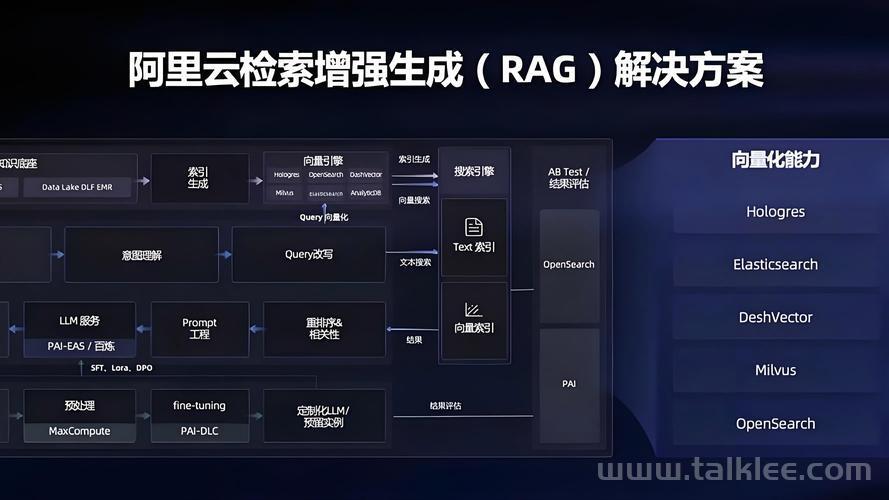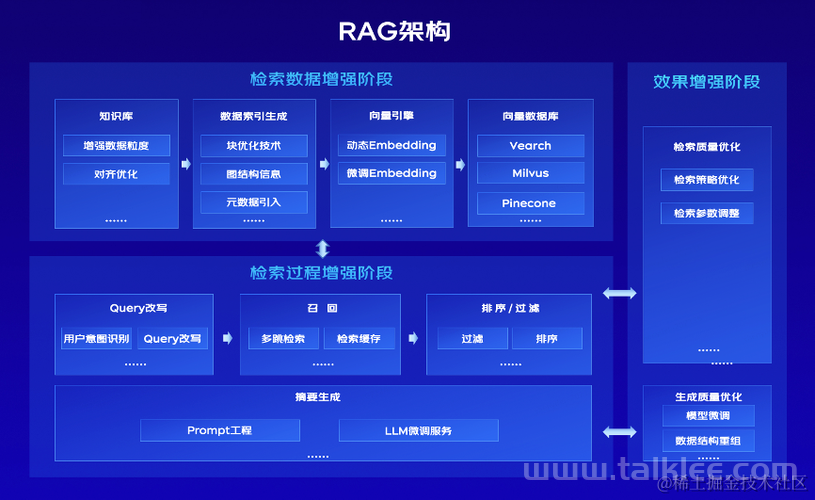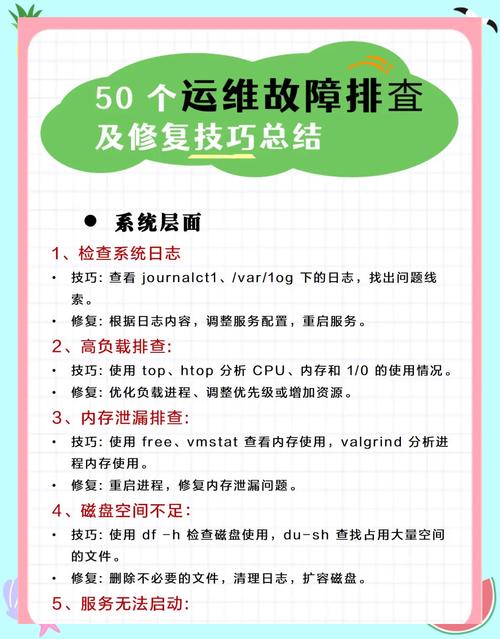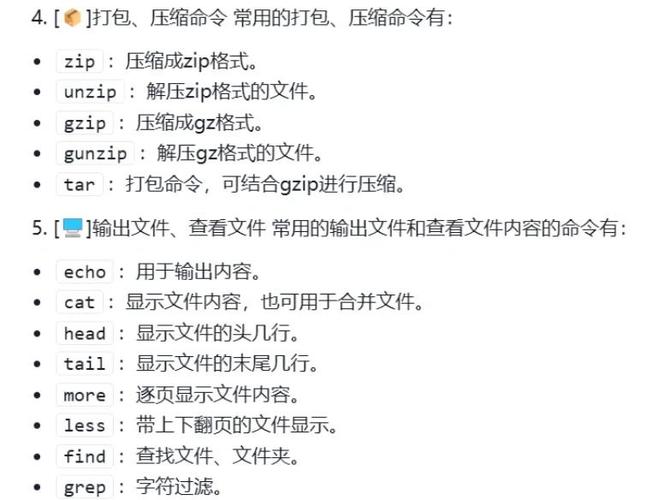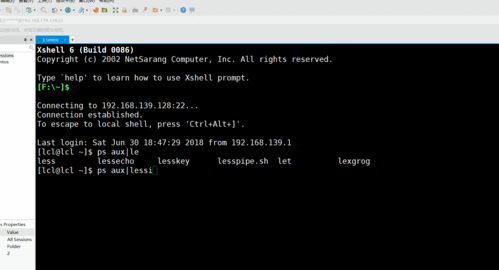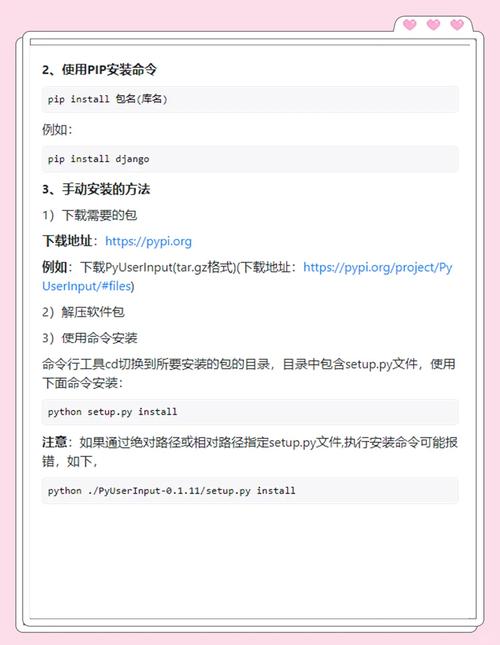华为昇腾Atlas 300I DUO ram64架构部署RagFlow
华为昇腾Atlas 300I DUO 欧拉22部署RagFlow
环境说明
- 操作系统 openEuler 22.03 LTS
- Atlas 300I DUO
- CPU ≥ 4 核
- 内存≥16GB
- 磁盘≥50GB
- Docker ≥ 24.0.0 和 Docker Compose ≥ v2.26.1
官网资源要求说明及步骤
前置配置
- 配置国内镜像端点(关键步骤)
# 在运行脚本前设置环境变量 export HF_ENDPOINT=https://hf-mirror.com # 永久生效配置 echo 'export HF_ENDPOINT=https://hf-mirror.com' >> ~/.bashrc # ModelScope,模型会下载到~/.cache/modelscope/hub默认路径下。如果需要修改 cache 目录,可以手动设置环境变量:MODELSCOPE_CACHE,完成设置后,模型将下载到该环境变量指定的目录中。 echo 'export MODELSCOPE_CACHE=/home/nvmedisk0/modelscopedownloadcache' >> ~/.bashrc
- 安装uv工具(Astral官方推荐方式)
# 使用curl安装(推荐) curl -Ls https://astro.ink/uv | sh # 或者使用pip安装(确保pip已更新) pip install --upgrade uv uv --version # 应该显示类似 uv 0.2.2 的版本信息 # 欧拉系统使用dnf包管理器安装证书 sudo dnf install ca-certificates -y # 更新证书数据库 sudo update-ca-trust
- docker 安装
按需选择版本,我安装的版本Docker version 26.1.4, build 5650f9b,Docker Compose version v2.35.0
# 安装 Docker curl -fsSL https://get.docker.com | bash -s docker --mirror Aliyun systemctl enable --now docker # 安装 docker-compose # v2.20.3 替换自己需要的版本 curl -L https://github.com/docker/compose/releases/download/v2.20.3/docker-compose-`uname -s`-`uname -m` -o /usr/local/bin/docker-compose chmod +x /usr/local/bin/docker-compose # 验证安装 docker -v docker-compose -v
- docker镜像站
构建Ragflow
官网原步骤
git clone https://github.com/infiniflow/ragflow.git cd ragflow/ # 这里使用国内镜像 uv run download_deps.py --china-mirrors # docker build -f Dockerfile.deps -t infiniflow/ragflow_deps . # 这一步如果遇到错误/chrome-linux64-121-0-6167-85" not found: not found,找不到文件夹,执行一下命令自行修复 # 如果是其他volumes目录不存在时,直接创建即可。 ## 检查当前目录文件列表(确认所有依赖文件已下载) ls -lh chromedriver* chrome* cl100k* libssl* tika* # 预期应看到以下文件(注意架构后缀): # - chromedriver-linux64-121-0-6167-85.zip # - chrome-linux64-121-0-6167-85.zip # - cl100k_base.tiktoken # - libssl1.1_1.1.1f-1ubuntu2_amd64.deb # - libssl1.1_1.1.1f-1ubuntu2_arm64.deb # - tika-server-standard-3.0.0.jar # - tika-server-standard-3.0.0.jar.md5 # 如果使用国内镜像导致文件名变化(示例修复): cp chrome-linux64.zip chrome-linux64-121-0-6167-85.zip cp chromedriver-linux64.zip chromedriver-linux64-121-0-6167-85.zip # 创建chromedriver解压目录(自动创建) unzip chromedriver-linux64-121-0-6167-85.zip -d chromedriver-linux64-121-0-6167-85 # 创建chrome解压目录(注意目录名前缀是chrome不是hrome) unzip chrome-linux64-121-0-6167-85.zip -d chrome-linux64-121-0-6167-85 # 建议先修改Dockerfile文件在执行这一步,参考下文的全部配置 # 建议先修改Dockerfile文件在执行这一步,参考下文的全部配置 # 建议先修改Dockerfile文件在执行这一步,参考下文的全部配置 docker build --build-arg LIGHTEN=1 -f Dockerfile -t infiniflow/ragflow:nightly-slim . # 这里可能遇见mount命令错误 #ERROR: failed to solve: failed to solve with frontend dockerfile.v0: failed to create LLB definition: Dockerfile parse error line 14: Unknown flag: mount # 执行以下步骤修改Dockerfile 文件。 # 1、第一行增加syntax=swr.cn-north-4.myhuaweicloud.com/ddn-k8s/docker.io/docker/dockerfile:1.4-linuxarm64 # 备选命令,清理构建缓存 docker build --no-cache --build-arg LIGHTEN=1 -f Dockerfile -t infiniflow/ragflow:nightly-slim .
Dockerfile 修复mount命令替换国内镜像
修改了123、127 、131行复制文件
# 关键步骤应包含类似以下指令
COPY chromedriver-linux64-121-0-6167-85 /
COPY chrome-linux64-121-0-6167-85 /
RUN --mount=type=bind,source=/chrome-linux64-121-0-6167-85.zip,target=/chrome-linux64.zip \
unzip /chrome-linux64.zip && \
mv chrome-linux64 /opt/chrome && \
ln -s /opt/chrome/chrome /usr/local/bin/
RUN --mount=type=bind,source=/chromedriver-linux64-121-0-6167-85.zip,target=/chromedriver-linux64.zip \
unzip -j /chromedriver-linux64.zip chromedriver-linux64/chromedriver && \
mv chromedriver /usr/local/bin/ && \
rm -f /usr/bin/google-chrome
Dockerfile 全部配置供参考
# syntax=swr.cn-north-4.myhuaweicloud.com/ddn-k8s/docker.io/docker/dockerfile:1.4-linuxarm64
# base stage
FROM swr.cn-north-4.myhuaweicloud.com/ddn-k8s/docker.io/library/ubuntu:22.04-linuxarm64 AS base
USER root
SHELL ["/bin/bash", "-c"]
ARG NEED_MIRROR=1
ARG LIGHTEN=0
ENV LIGHTEN=${LIGHTEN}
WORKDIR /ragflow
# Copy models downloaded via download_deps.py
RUN mkdir -p /ragflow/rag/res/deepdoc /root/.ragflow
RUN --mount=type=bind,from=infiniflow/ragflow_deps:latest,source=/huggingface.co,target=/huggingface.co \
cp /huggingface.co/InfiniFlow/huqie/huqie.txt.trie /ragflow/rag/res/ && \
tar --exclude='.*' -cf - \
/huggingface.co/InfiniFlow/text_concat_xgb_v1.0 \
/huggingface.co/InfiniFlow/deepdoc \
| tar -xf - --strip-components=3 -C /ragflow/rag/res/deepdoc
RUN --mount=type=bind,from=infiniflow/ragflow_deps:latest,source=/huggingface.co,target=/huggingface.co \
if [ "$LIGHTEN" != "1" ]; then \
(tar -cf - \
/huggingface.co/BAAI/bge-large-zh-v1.5 \
/huggingface.co/maidalun1020/bce-embedding-base_v1 \
| tar -xf - --strip-components=2 -C /root/.ragflow) \
fi
# https://github.com/chrismattmann/tika-python
# This is the only way to run python-tika without internet access. Without this set, the default is to check the tika version and pull latest every time from Apache.
RUN --mount=type=bind,from=infiniflow/ragflow_deps:latest,source=/,target=/deps \
cp -r /deps/nltk_data /root/ && \
cp /deps/tika-server-standard-3.0.0.jar /deps/tika-server-standard-3.0.0.jar.md5 /ragflow/ && \
cp /deps/cl100k_base.tiktoken /ragflow/9b5ad71b2ce5302211f9c61530b329a4922fc6a4
ENV TIKA_SERVER_JAR="file:///ragflow/tika-server-standard-3.0.0.jar"
ENV DEBIAN_FRONTEND=noninteractive
# Setup apt
# Python package and implicit dependencies:
# opencv-python: libglib2.0-0 libglx-mesa0 libgl1
# aspose-slides: pkg-config libicu-dev libgdiplus libssl1.1_1.1.1f-1ubuntu2_amd64.deb
# python-pptx: default-jdk tika-server-standard-3.0.0.jar
# selenium: libatk-bridge2.0-0 chrome-linux64-121-0-6167-85
# Building C extensions: libpython3-dev libgtk-4-1 libnss3 xdg-utils libgbm-dev
RUN --mount=type=cache,id=ragflow_apt,target=/var/cache/apt,sharing=locked \
if [ "$NEED_MIRROR" == "1" ]; then \
sed -i 's|http://ports.ubuntu.com|http://mirrors.tuna.tsinghua.edu.cn|g' /etc/apt/sources.list; \
sed -i 's|http://archive.ubuntu.com|http://mirrors.tuna.tsinghua.edu.cn|g' /etc/apt/sources.list; \
fi; \
rm -f /etc/apt/apt.conf.d/docker-clean && \
echo 'Binary::apt::APT::Keep-Downloaded-Packages "true";' > /etc/apt/apt.conf.d/keep-cache && \
chmod 1777 /tmp && \
apt update && \
apt --no-install-recommends install -y ca-certificates && \
apt update && \
apt install -y libglib2.0-0 libglx-mesa0 libgl1 && \
apt install -y pkg-config libicu-dev libgdiplus && \
apt install -y default-jdk && \
apt install -y libatk-bridge2.0-0 && \
apt install -y libpython3-dev libgtk-4-1 libnss3 xdg-utils libgbm-dev && \
apt install -y libjemalloc-dev && \
apt install -y python3-pip pipx nginx unzip curl wget git vim less
RUN if [ "$NEED_MIRROR" == "1" ]; then \
pip3 config set global.index-url https://mirrors.aliyun.com/pypi/simple && \
pip3 config set global.trusted-host mirrors.aliyun.com; \
mkdir -p /etc/uv && \
echo "[[index]]" > /etc/uv/uv.toml && \
echo 'url = "https://mirrors.aliyun.com/pypi/simple"' >> /etc/uv/uv.toml && \
echo "default = true" >> /etc/uv/uv.toml; \
fi; \
pipx install uv
ENV PYTHONDONTWRITEBYTECODE=1 DOTNET_SYSTEM_GLOBALIZATION_INVARIANT=1
ENV PATH=/root/.local/bin:$PATH
# nodejs 12.22 on Ubuntu 22.04 is too old
RUN --mount=type=cache,id=ragflow_apt,target=/var/cache/apt,sharing=locked \
curl -fsSL https://deb.nodesource.com/setup_20.x | bash - && \
apt purge -y nodejs npm cargo && \
apt autoremove -y && \
apt update && \
apt install -y nodejs
# A modern version of cargo is needed for the latest version of the Rust compiler.
RUN apt update && apt install -y curl build-essential \
&& if [ "$NEED_MIRROR" == "1" ]; then \
# Use TUNA mirrors for rustup/rust dist files
export RUSTUP_DIST_SERVER="https://mirrors.tuna.tsinghua.edu.cn/rustup"; \
export RUSTUP_UPDATE_ROOT="https://mirrors.tuna.tsinghua.edu.cn/rustup/rustup"; \
echo "Using TUNA mirrors for Rustup."; \
fi; \
# Force curl to use HTTP/1.1
curl --proto '=https' --tlsv1.2 --http1.1 -sSf https://sh.rustup.rs | bash -s -- -y --profile minimal \
&& echo 'export PATH="/root/.cargo/bin:${PATH}"' >> /root/.bashrc
ENV PATH="/root/.cargo/bin:${PATH}"
RUN cargo --version && rustc --version
# Add msssql ODBC driver
# macOS ARM64 environment, install msodbcsql18.
# general x86_64 environment, install msodbcsql17.
RUN --mount=type=cache,id=ragflow_apt,target=/var/cache/apt,sharing=locked \
curl https://packages.microsoft.com/keys/microsoft.asc | apt-key add - && \
curl https://packages.microsoft.com/config/ubuntu/22.04/prod.list > /etc/apt/sources.list.d/mssql-release.list && \
apt update && \
arch="$(uname -m)"; \
if [ "$arch" = "arm64" ] || [ "$arch" = "aarch64" ]; then \
# ARM64 (macOS/Apple Silicon or Linux aarch64)
ACCEPT_EULA=Y apt install -y unixodbc-dev msodbcsql18; \
else \
# x86_64 or others
ACCEPT_EULA=Y apt install -y unixodbc-dev msodbcsql17; \
fi || \
{ echo "Failed to install ODBC driver"; exit 1; }
# Add dependencies of selenium
# 关键步骤应包含类似以下指令
COPY chromedriver-linux64-121-0-6167-85 /
COPY chrome-linux64-121-0-6167-85 /
RUN --mount=type=bind,source=/chrome-linux64-121-0-6167-85.zip,target=/chrome-linux64.zip \
unzip /chrome-linux64.zip && \
mv chrome-linux64 /opt/chrome && \
ln -s /opt/chrome/chrome /usr/local/bin/
RUN --mount=type=bind,source=/chromedriver-linux64-121-0-6167-85.zip,target=/chromedriver-linux64.zip \
unzip -j /chromedriver-linux64.zip chromedriver-linux64/chromedriver && \
mv chromedriver /usr/local/bin/ && \
rm -f /usr/bin/google-chrome
# https://forum.aspose.com/t/aspose-slides-for-net-no-usable-version-of-libssl-found-with-linux-server/271344/13
# aspose-slides on linux/arm64 is unavailable
RUN --mount=type=bind,from=infiniflow/ragflow_deps:latest,source=/,target=/deps \
if [ "$(uname -m)" = "x86_64" ]; then \
dpkg -i /deps/libssl1.1_1.1.1f-1ubuntu2_amd64.deb; \
elif [ "$(uname -m)" = "aarch64" ]; then \
dpkg -i /deps/libssl1.1_1.1.1f-1ubuntu2_arm64.deb; \
fi
# builder stage
FROM base AS builder
USER root
WORKDIR /ragflow
# install dependencies from uv.lock file
COPY pyproject.toml uv.lock ./
# https://github.com/astral-sh/uv/issues/10462
# uv records index url into uv.lock but doesn't failover among multiple indexes
RUN --mount=type=cache,id=ragflow_uv,target=/root/.cache/uv,sharing=locked \
if [ "$NEED_MIRROR" == "1" ]; then \
sed -i 's|pypi.org|mirrors.aliyun.com/pypi|g' uv.lock; \
else \
sed -i 's|mirrors.aliyun.com/pypi|pypi.org|g' uv.lock; \
fi; \
if [ "$LIGHTEN" == "1" ]; then \
uv sync --python 3.10 --frozen; \
else \
uv sync --python 3.10 --frozen --all-extras; \
fi
COPY web web
COPY docs docs
RUN --mount=type=cache,id=ragflow_npm,target=/root/.npm,sharing=locked \
cd web && npm install && npm run build
COPY .git /ragflow/.git
RUN version_info=$(git describe --tags --match=v* --first-parent --always); \
if [ "$LIGHTEN" == "1" ]; then \
version_info="$version_info slim"; \
else \
version_info="$version_info full"; \
fi; \
echo "RAGFlow version: $version_info"; \
echo $version_info > /ragflow/VERSION
# production stage
FROM base AS production
USER root
WORKDIR /ragflow
# Copy Python environment and packages
ENV VIRTUAL_ENV=/ragflow/.venv
COPY --from=builder ${VIRTUAL_ENV} ${VIRTUAL_ENV}
ENV PATH="${VIRTUAL_ENV}/bin:${PATH}"
ENV PYTHONPATH=/ragflow/
COPY web web
COPY api api
COPY conf conf
COPY deepdoc deepdoc
COPY rag rag
COPY agent agent
COPY graphrag graphrag
COPY agentic_reasoning agentic_reasoning
COPY pyproject.toml uv.lock ./
COPY docker/service_conf.yaml.template ./conf/service_conf.yaml.template
COPY docker/entrypoint.sh ./
RUN chmod +x ./entrypoint*.sh
# Copy compiled web pages
COPY --from=builder /ragflow/web/dist /ragflow/web/dist
COPY --from=builder /ragflow/VERSION /ragflow/VERSION
ENTRYPOINT ["./entrypoint.sh"]
启动ragflow
修改docker-compose.yml
修改了暴露端口为81,extra_hosts:为host.docker.internal:172.17.0.1
include:
- ./docker-compose-base.yml
# To ensure that the container processes the locally modified `service_conf.yaml.template` instead of the one included in its image, you need to mount the local `service_conf.yaml.template` to the container.
services:
ragflow:
depends_on:
mysql:
condition: service_healthy
image: ${RAGFLOW_IMAGE}
container_name: ragflow-server
ports:
- ${SVR_HTTP_PORT}:9380
- 81:80
- 444:443
- 5678:5678
- 5679:5679
volumes:
- ./ragflow-logs:/ragflow/logs
- ./nginx/ragflow.conf:/etc/nginx/conf.d/ragflow.conf
- ./nginx/proxy.conf:/etc/nginx/proxy.conf
- ./nginx/nginx.conf:/etc/nginx/nginx.conf
- ../history_data_agent:/ragflow/history_data_agent
- ./service_conf.yaml.template:/ragflow/conf/service_conf.yaml.template
env_file: .env
environment:
- TZ=${TIMEZONE}
- HF_ENDPOINT=${HF_ENDPOINT}
- MACOS=${MACOS}
networks:
- ragflow
restart: on-failure
# https://docs.docker.com/engine/daemon/prometheus/#create-a-prometheus-configuration
# If you're using Docker Desktop, the --add-host flag is optional. This flag makes sure that the host's internal IP gets exposed to the Prometheus container.
extra_hosts:
#- "host.docker.internal:host-gateway"
- "host.docker.internal:172.17.0.1"
# executor:
# depends_on:
# mysql:
# condition: service_healthy
# image: ${RAGFLOW_IMAGE}
# container_name: ragflow-executor
# volumes:
# - ./ragflow-logs:/ragflow/logs
# - ./nginx/ragflow.conf:/etc/nginx/conf.d/ragflow.conf
# env_file: .env
# environment:
# - TZ=${TIMEZONE}
# - HF_ENDPOINT=${HF_ENDPOINT}
# - MACOS=${MACOS}
# entrypoint: "/ragflow/entrypoint_task_executor.sh 1 3"
# networks:
# - ragflow
# restart: on-failure
# # https://docs.docker.com/engine/daemon/prometheus/#create-a-prometheus-configuration
# # If you're using Docker Desktop, the --add-host flag is optional. This flag makes sure that the host's internal IP gets exposed to the Prometheus container.
# extra_hosts:
# - "host.docker.internal:host-gateway"
修改docker-compose-base.yml
修改了镜像,全部使用国内arm64镜像
修改了redis服务名,.env中同步修改
services:
es01:
container_name: ragflow-es-01
profiles:
- elasticsearch
image: swr.cn-north-4.myhuaweicloud.com/ddn-k8s/docker.io/library/elasticsearch:8.11.3-linuxarm64
volumes:
- esdata01:/usr/share/elasticsearch/data
ports:
- ${ES_PORT}:9200
env_file: .env
environment:
- node.name=es01
- ELASTIC_PASSWORD=${ELASTIC_PASSWORD}
- bootstrap.memory_lock=false
- discovery.type=single-node
- xpack.security.enabled=true
- xpack.security.http.ssl.enabled=false
- xpack.security.transport.ssl.enabled=false
- cluster.routing.allocation.disk.watermark.low=5gb
- cluster.routing.allocation.disk.watermark.high=3gb
- cluster.routing.allocation.disk.watermark.flood_stage=2gb
- TZ=${TIMEZONE}
mem_limit: ${MEM_LIMIT}
ulimits:
memlock:
soft: -1
hard: -1
healthcheck:
test: ["CMD-SHELL", "curl http://localhost:9200"]
interval: 10s
timeout: 10s
retries: 120
networks:
- ragflow
restart: on-failure
infinity:
container_name: ragflow-infinity
profiles:
- infinity
image: swr.cn-north-4.myhuaweicloud.com/ddn-k8s/docker.io/michaelf34/infinity:latest-linuxarm64
volumes:
- infinity_data:/var/infinity
- ./infinity_conf.toml:/infinity_conf.toml
command: ["-f", "/infinity_conf.toml"]
ports:
- ${INFINITY_THRIFT_PORT}:23817
- ${INFINITY_HTTP_PORT}:23820
- ${INFINITY_PSQL_PORT}:5432
env_file: .env
environment:
- TZ=${TIMEZONE}
mem_limit: ${MEM_LIMIT}
ulimits:
nofile:
soft: 500000
hard: 500000
networks:
- ragflow
healthcheck:
test: ["CMD", "curl", "http://localhost:23820/admin/node/current"]
interval: 10s
timeout: 10s
retries: 120
restart: on-failure
mysql:
# mysql:5.7 linux/arm64 image is unavailable.
image: swr.cn-north-4.myhuaweicloud.com/ddn-k8s/docker.io/mysql:8.0.39-linuxarm64
container_name: ragflow-mysql
env_file: .env
environment:
- MYSQL_ROOT_PASSWORD=${MYSQL_PASSWORD}
- TZ=${TIMEZONE}
command:
--max_connections=1000
--character-set-server=utf8mb4
--collation-server=utf8mb4_unicode_ci
--default-authentication-plugin=mysql_native_password
--tls_version="TLSv1.2,TLSv1.3"
--init-file /data/application/init.sql
--binlog_expire_logs_seconds=604800
ports:
- ${MYSQL_PORT}:3306
volumes:
- mysql_data:/var/lib/mysql
- ./init.sql:/data/application/init.sql
networks:
- ragflow
healthcheck:
test: ["CMD", "mysqladmin" ,"ping", "-uroot", "-p${MYSQL_PASSWORD}"]
interval: 10s
timeout: 10s
retries: 3
restart: on-failure
minio:
image: swr.cn-north-4.myhuaweicloud.com/ddn-k8s/quay.io/minio/minio:RELEASE.2023-12-20T01-00-02Z-linuxarm64
container_name: ragflow-minio
command: server --console-address ":9001" /data
ports:
- ${MINIO_PORT}:9000
- ${MINIO_CONSOLE_PORT}:9001
env_file: .env
environment:
- MINIO_ROOT_USER=${MINIO_USER}
- MINIO_ROOT_PASSWORD=${MINIO_PASSWORD}
- TZ=${TIMEZONE}
volumes:
- minio_data:/data
networks:
- ragflow
restart: on-failure
ragflow-redis:
# swr.cn-north-4.myhuaweicloud.com/ddn-k8s/docker.io/valkey/valkey:8
image: swr.cn-north-4.myhuaweicloud.com/ddn-k8s/docker.io/valkey/valkey:8-linuxarm64
container_name: ragflow-redis
command: redis-server --requirepass ${REDIS_PASSWORD} --maxmemory 128mb --maxmemory-policy allkeys-lru
env_file: .env
ports:
- ${REDIS_PORT}:6379
volumes:
- redis_data:/data
networks:
- ragflow
restart: on-failure
volumes:
esdata01:
driver: local
infinity_data:
driver: local
mysql_data:
driver: local
minio_data:
driver: local
redis_data:
driver: local
networks:
ragflow:
driver: bridge
修改service_conf.yaml.template
修改默认密码等
ragflow:
host: ${RAGFLOW_HOST:-0.0.0.0}
http_port: 9380
mysql:
name: '${MYSQL_DBNAME:-rag_flow}'
user: '${MYSQL_USER:-root}'
password: '${MYSQL_PASSWORD:-Yunlian@rag_flow}'
host: '${MYSQL_HOST:-mysql}'
port: 3306
max_connections: 100
stale_timeout: 30
minio:
user: '${MINIO_USER:-rag_flow}'
password: '${MINIO_PASSWORD:-Yunlian@rag_flow}'
host: '${MINIO_HOST:-minio}:9000'
es:
hosts: 'http://${ES_HOST:-es01}:9200'
username: '${ES_USER:-elastic}'
password: '${ELASTIC_PASSWORD:-Yunlian@rag_flow}'
infinity:
uri: '${INFINITY_HOST:-infinity}:23817'
db_name: 'default_db'
redis:
db: 1
password: '${REDIS_PASSWORD:-Yunlian@rag_flow}'
host: '${REDIS_HOST:-redis}:6379'
修改.env
修改默认密码等
# The type of doc engine to use.
# Available options:
# - `elasticsearch` (default)
# - `infinity` (https://github.com/infiniflow/infinity)
DOC_ENGINE=${DOC_ENGINE:-elasticsearch}
# ------------------------------
# docker env var for specifying vector db type at startup
# (based on the vector db type, the corresponding docker
# compose profile will be used)
# ------------------------------
COMPOSE_PROFILES=${DOC_ENGINE}
# The version of Elasticsearch. 这里虽然改了,但未使用
STACK_VERSION=8.11.3-linuxarm64
# The hostname where the Elasticsearch service is exposed
ES_HOST=es01
# The port used to expose the Elasticsearch service to the host machine,
# allowing EXTERNAL access to the service running inside the Docker container.
ES_PORT=1200
# The password for Elasticsearch.
ELASTIC_PASSWORD=Yunlian@rag_flow
# The port used to expose the Kibana service to the host machine,
# allowing EXTERNAL access to the service running inside the Docker container.
KIBANA_PORT=6601
KIBANA_USER=rag_flow
KIBANA_PASSWORD=Yunlian@rag_flow
# The maximum amount of the memory, in bytes, that a specific Docker container can use while running.
# Update it according to the available memory in the host machine.
MEM_LIMIT=8073741824
# The hostname where the Infinity service is exposed
INFINITY_HOST=infinity
# Port to expose Infinity API to the host
INFINITY_THRIFT_PORT=23817
INFINITY_HTTP_PORT=23820
INFINITY_PSQL_PORT=5432
# The password for MySQL.
MYSQL_PASSWORD=Yunlian@rag_flow
# The hostname where the MySQL service is exposed
MYSQL_HOST=mysql
# The database of the MySQL service to use
MYSQL_DBNAME=rag_flow
# The port used to expose the MySQL service to the host machine,
# allowing EXTERNAL access to the MySQL database running inside the Docker container.
MYSQL_PORT=5455
# The hostname where the MinIO service is exposed
MINIO_HOST=minio
# The port used to expose the MinIO console interface to the host machine,
# allowing EXTERNAL access to the web-based console running inside the Docker container.
MINIO_CONSOLE_PORT=9001
# The port used to expose the MinIO API service to the host machine,
# allowing EXTERNAL access to the MinIO object storage service running inside the Docker container.
MINIO_PORT=9000
# The username for MinIO.
# When updated, you must revise the `minio.user` entry in service_conf.yaml accordingly.
MINIO_USER=rag_flow
# The password for MinIO.
# When updated, you must revise the `minio.password` entry in service_conf.yaml accordingly.
MINIO_PASSWORD=Yunlian@rag_flow
# The hostname where the Redis service is exposed
REDIS_HOST=ragflow-redis
# The port used to expose the Redis service to the host machine,
# allowing EXTERNAL access to the Redis service running inside the Docker container.
REDIS_PORT=26379
# The password for Redis.
REDIS_PASSWORD=Yunlian@rag_flow
# The port used to expose RAGFlow's HTTP API service to the host machine,
# allowing EXTERNAL access to the service running inside the Docker container.
SVR_HTTP_PORT=9380
# The RAGFlow Docker image to download.
# Defaults to the v0.17.2-slim edition, which is the RAGFlow Docker image without embedding models.
RAGFLOW_IMAGE=infiniflow/ragflow:nightly-slim-yl
#
# To download the RAGFlow Docker image with embedding models, uncomment the following line instead:
# RAGFLOW_IMAGE=infiniflow/ragflow:v0.17.2
#
# The Docker image of the v0.17.2 edition includes built-in embedding models:
# - BAAI/bge-large-zh-v1.5
# - maidalun1020/bce-embedding-base_v1
#
# If you cannot download the RAGFlow Docker image:
#
# - For the `nightly-slim` edition, uncomment either of the following:
# RAGFLOW_IMAGE=swr.cn-north-4.myhuaweicloud.com/infiniflow/ragflow:nightly-slim
# RAGFLOW_IMAGE=registry.cn-hangzhou.aliyuncs.com/infiniflow/ragflow:nightly-slim
#
# - For the `nightly` edition, uncomment either of the following:
# RAGFLOW_IMAGE=swr.cn-north-4.myhuaweicloud.com/infiniflow/ragflow:nightly
# RAGFLOW_IMAGE=registry.cn-hangzhou.aliyuncs.com/infiniflow/ragflow:nightly
# The local time zone.
TIMEZONE='Asia/Shanghai'
# Uncomment the following line if you have limited access to huggingface.co:
# HF_ENDPOINT=https://hf-mirror.com
# Optimizations for MacOS
# Uncomment the following line if your operating system is MacOS:
# MACOS=1
# The maximum file size limit (in bytes) for each upload to your knowledge base or File Management.
# To change the 1GB file size limit, uncomment the line below and update as needed.
# MAX_CONTENT_LENGTH=1073741824
# After updating, ensure `client_max_body_size` in nginx/nginx.conf is updated accordingly.
# Note that neither `MAX_CONTENT_LENGTH` nor `client_max_body_size` sets the maximum size for files uploaded to an agent.
# See https://ragflow.io/docs/dev/begin_component for details.
# The log level for the RAGFlow's owned packages and imported packages.
# Available level:
# - `DEBUG`
# - `INFO` (default)
# - `WARNING`
# - `ERROR`
# For example, following line changes the log level of `ragflow.es_conn` to `DEBUG`:
# LOG_LEVELS=ragflow.es_conn=DEBUG
# aliyun OSS configuration
# STORAGE_IMPL=OSS
# ACCESS_KEY=xxx
# SECRET_KEY=eee
# ENDPOINT=http://oss-cn-hangzhou.aliyuncs.com
# REGION=cn-hangzhou
# BUCKET=ragflow65536
# user registration switch
REGISTER_ENABLED=1
启动docker
# 在ragflow 的docker目录下执行 docker compose up -d # 出现以下内容 WARN[0000] The "HF_ENDPOINT" variable is not set. Defaulting to a blank string. WARN[0000] The "MACOS" variable is not set. Defaulting to a blank string. [+] Running 10/14 ⠦ es01 [⣀⣿⣿⣿⠀⣿⣿⣿⣿⡀] 28.89MB / 452MB Pulling 15.6s ⠦ a5319f8e5f3f Downloading [==================> ] 10.03MB/27.2MB 14.6s ✔ 51be98b1d6e3 Download complete 11.2s ✔ db7cc25a9ed6 Download complete 1.4s ✔ 4f4fb700ef54 Download complete 3.4s ⠦ 16f72b7d4c4e Downloading [=> ] 11.35MB/417.2MB 14.6s ✔ 3530ea432109 Download complete 11.5s ✔ f8d0e1d2c4e7 Download complete 12.2s ✔ 9aae14f29515 Download complete 13.2s ✔ fd08817fddb3 Download complete # 其他常用命令 # 检查服务状态 docker compose ps # 停止 docker compose down
遇到问题汇总
1.mount命令错误
#ERROR: failed to solve: failed to solve with frontend dockerfile.v0: failed to create LLB definition: Dockerfile parse error line 14: Unknown flag: mount # 执行以下步骤修改Dockerfile 文件。 # 1、第一行增加syntax=swr.cn-north-4.myhuaweicloud.com/ddn-k8s/docker.io/docker/dockerfile:1.4-linuxarm64
uv命令不存在
# 使用curl安装(推荐) curl -Ls https://astro.ink/uv | sh # 或者使用pip安装(确保pip已更新) pip install --upgrade uv
huggingface.co 连不上
换国内镜像即可
“/chrome-linux64-121-0-6167-85” not found: not found
参考构建ragflow中的说明
(图片来源网络,侵删)
(图片来源网络,侵删)
(图片来源网络,侵删)
免责声明:我们致力于保护作者版权,注重分享,被刊用文章因无法核实真实出处,未能及时与作者取得联系,或有版权异议的,请联系管理员,我们会立即处理! 部分文章是来自自研大数据AI进行生成,内容摘自(百度百科,百度知道,头条百科,中国民法典,刑法,牛津词典,新华词典,汉语词典,国家院校,科普平台)等数据,内容仅供学习参考,不准确地方联系删除处理! 图片声明:本站部分配图来自人工智能系统AI生成,觅知网授权图片,PxHere摄影无版权图库和百度,360,搜狗等多加搜索引擎自动关键词搜索配图,如有侵权的图片,请第一时间联系我们。


